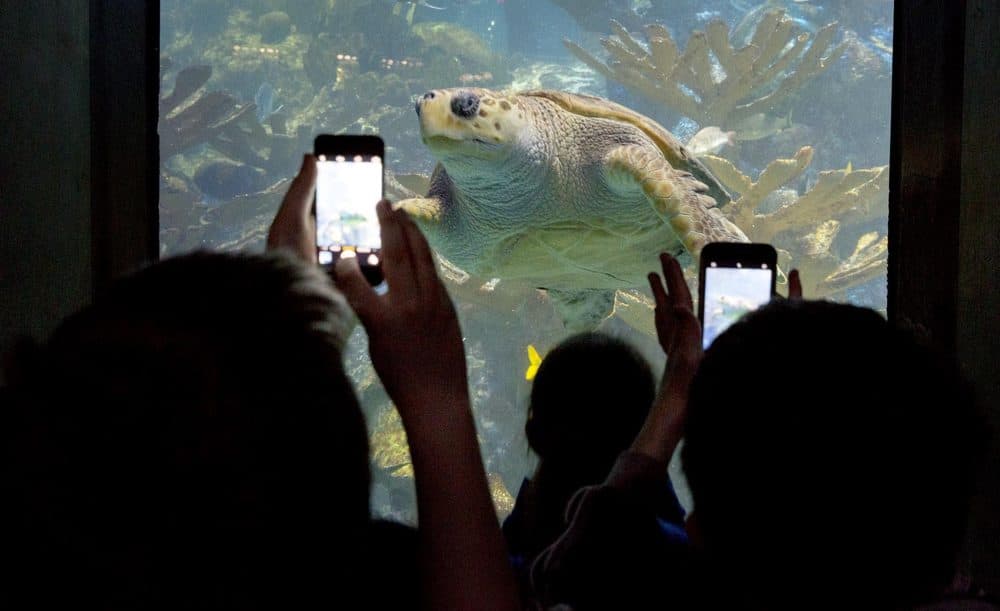Advertisement
U.N. Report Is 'Cloud We're Holding' Over Children's Heads, Former Chief Scientist Says
Resume
Human beings do not stand apart from natural ecosystems. We don’t just hover above the planet’s biosphere, immune to the effects of its changes. Every change we impress upon nature comes back and changes us.
That may be the most important takeaway from the landmark United Nations report this week that declared humans are transforming nature at an unprecedented rate: most major land habitats depleted, marine ecosystems transformed and 1 million plant and animal species threatened with extinction.
And Tim Foresman former U.N. chief environmental scientist with the Environment Programme in Nairobi, Kenya, says it's our children who are going to have to deal most directly with the uncertainty of a rapidly changing world.
"I write children's books, and we're trying to engage them with this reality. But you realize this cloud that we're holding over their heads with reports like this, and there is no good news in that report," he told On Point Tuesday, calling in from Elkridge, Maryland.
"If you look at your children and tell them they're doomed, what do you think that's doing to their heads?"
Foresman believes this is nothing new. He says the latest data echo a 2002 report he was responsible for delivering to 192 nations at the Global Summit for Sustainable Development.
The slow accumulation of evidence for how humans are changing the Earth is something Foresman can look at "with nostalgia," he said. But for kids — especially those raising their voices to ask lawmakers to deal with climate change and biodiversity immediately — it's something else: "solastalgia."
"They have a new word ... which talks about the psychological impacts of this awareness," Foresman said.
"Solastalgia" was first coined by philosopher Glenn Albrecht in 2005 — it's a term to reflect the loss folks feel as our home planet approaches irrevocable change.
“Literally, solastalgia is the pain or sickness caused by the loss or lack of solace and the sense of isolation connected to the present state of one’s home and territory,” Albrecht wrote.
"If you look at your children and tell them they're doomed, what do you think that's doing to their heads?"
Tim Foresman
It's this dread that Foresman hopes to address with his books. He said that bigger systems like the churn of capitalism and population growth feed into rapid planetary change. But there are things we can do.
"The big control for 7.5 billion people is the daily choices we make," Foresman said. "'What are we buying? What are we eating? Where do we live? How do we build our houses?' That's the only control that these children can work with. Because it is very dark, and I don't like to watch kids crying. So we try to get them excited about what they can do."
Anna Bauman produced this hour for broadcast.
